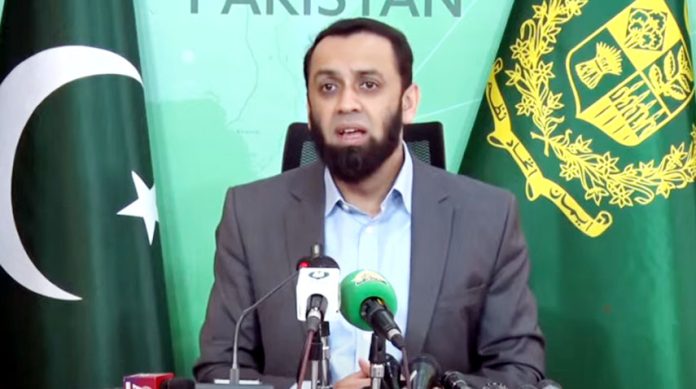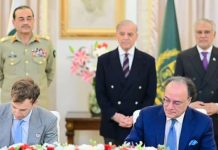Information minister alleges PTI of aligning with foreign adversaries to further its agenda against Pakistan
DNA
ISLAMABAD, AUG 18: Information Minister Ataullah Tarar criticised the Pakistan Tehreek-e-Insaf (PTI) party, alleging that its connections with Indian elements have exposed its anti-national agenda.
He accused PTI of aligning with foreign adversaries to further its agenda against Pakistan, specifically citing interactions between PTI leader Raoof Hasan and Indian journalists as evidence.
Tarar claimed that the collaboration between PTI’s founder and Faiz Hameed, along with the party’s engagement with anti-Pakistan journalists across the eastern border and decisions to bring extremist elements back via the western border, represents a severe betrayal of national interests.
He asserted that Hasan’s communication with an Indian journalist, known for anti-Pakistan sentiments, has further revealed PTI’s disloyalty to the country.
The information minister asserted that PTI, funded by foreign sources, has previously damaged Pakistan’s foreign policy through controversial diplomatic channels and is now jeopardising national integrity by relying on foreign patrons.
The minister pointed out that Hasan’s interaction with the Indian journalist mirrored PTI’s broader agenda of undermining Pakistan’s sovereignty.
He suggested that this aligns with the attacks on May 9 and the party’s Islamabad-based social media cell, which has been implicated in anti-army propaganda with links to India.
Tarar accused PTI of pursuing a foreign-sponsored agenda that promotes chaos and destabilisation in Pakistan. He further alleged that the party’s foreign funding and recent interactions with Indian journalists confirm its alignment with hostile foreign agendas against Pakistan.
He also criticised Hameed as a significant player in PTI’s strategy to create instability and weaken Pakistan’s institutions. The information minister emphasised that the collaboration between Faiz, Imran Khan, and Bushra Bibi (Khan’s spouse) has led to damaging country’s interests and undermining military cohesion.
In conclusion, Tarar claimed that this alliance has orchestrated anti-military rhetoric to incite unrest among serving and retired officers, aiming to create the illusion of confusion and division within the Pakistani military.

















